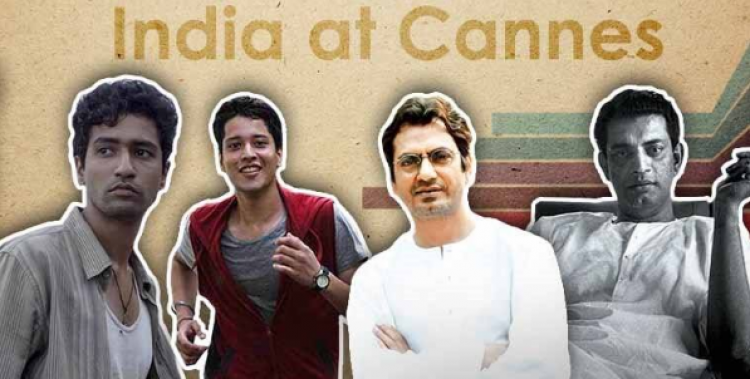The 75th edition of the Cannes Film Festival has just concluded, and, as ever, that vexing question has arisen. Why didnât India have a winner in the competition section, which had Indian actor Deepika Padukone as part of the jury this year? Why does a nation that makes the maximum number of films fall behind the metrics that decide the winners?
India is the first ‘Country of Honour’ at the Marche du Cinema, the business segment of the marquee festival. The Bollywood brigade arrived at the Cannes Film Festival with much fanfare, but Shaunak Sen’s ‘All That Breathes’, which won the L’Oeil d’Or, was the sole contender in the official selection.
Those asking “why-not-India-in-the-competition” tend to forget that India is not known for the kind of cinema that appeals to the selectors-cum-gatekeepers to that coveted section. A combination of audience preference, which has been fed on escapist cinema for decades as the sole ‘entertainment’ option, and a fear of rocking the boat has kept Indian filmmakers far from the kind of realism that leads to finding a Cannes competitive pew.
The 75th edition of the Cannes Film Festival has just concluded, and, as ever, that vexing question has arisen. Why didn’t India have a winner in the competition section, which had Indian actor Deepika Padukone as part of the jury this year? Why does a nation that makes the maximum number of films fall behind the metrics that decide the winners?
No Dearth Of Stories
In 2013, when she was a juror at the Festival de Cannes for the second time, actor Nandita Das was asked a similar question. Why are there so few Indian films? “In India, there is no dearth of stories, both in life and literature. But sadly, we don’t give the script the importance it deserves,” she said.
It boils down to what structures there are to support independent cinema — both private and public. If the Indian creators, actors, directors and writers are doing “everything correct”, perhaps The problem is with the “selection process”. In a robust film culture, mainstream films and those geared towards artistic quality have to co-exist.
No Batman or Superman or humungous dinosaur is about to give Indian filmmakers sleepless nights with a RRR and a KGF under their bulging box office belts. Indian films are invincible in India with their penchant for spectacle, song-and-dance, and melodrama, so who cares about the Croisette?
The Rager From The Dark
It’s not that Indian films haven’t won accolades in the past. To recall a few, in 1946, in Chetan Anand’s story depicting the class divide in Indian society, Neecha Nagar won the Grand Prix du Festival International du Film. The classic film Do Bigha Zamin by Bimal Roy won the Prix Internationale in 1954.

A few years later, in 1988, Mira Nair’s Salaam Bombay won the Camera d’Or and the Audience Prize. Between 2010-2015, Vikramaditya Motwane’s Udaan, Anurag Kashyap’s Gangs Of Wasseypur, Ritesh Batra’s The Lunchbox, and Neeraj Ghaywan’s Masaan premiered in Cannes sidebar sections. What happened after that? Are there no takers for realistic cinema anymore, or is hewing close to the truth even more unprofitable in today’s Bollywood, struggling with pandemic-and-censorship woes?

But if our fictional outings haven’t made the cut, our documentaries have more than made up for it. Shaunak Sen’s brilliant All That Breathes, about Delhi’s frighteningly foul air and the love of fowls that that two brothers exhibit, has won the Golden Eye, the top documentary award. The film is a compelling examination of the ecosystem that nurtures both man and beast: Why are kites, those magnificent predatory birds, falling from the skies in increasing numbers, becoming prey themselves? And how will the humans who live and work in one of the world’s great capitals, survive the twin blows of pollution and polarisation? Sen’s film derives power from its authenticity.
Are Indian producers ready to back even a handful of independent, truth-seeking films, those that may give us a chance to compete with the best at Cannes? Till then, we will have to be content with flaunting our wares on the red carpet or in sections where we can buy our way in.



















